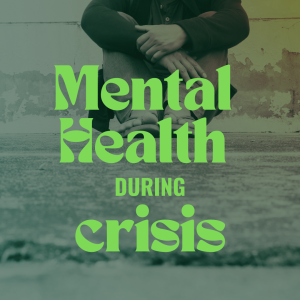When someone close to you, whether a partner, friend or a family member is living with PTSD, it impacts you as well. PTSD can put a significant strain on both relationships and family life. You might feel hurt by their distance or mood changes, wondering why they seem less affectionate or more unpredictable. It can feel like you are constantly walking on eggshells or living with someone you no longer recognize, and you may end up shouldering more responsibilities or feeling frustrated when your loved one struggles to open up. It’s important to remember that those behaviors aren’t always within their control-PTSD keeps their nervous system on high alert, making them feel unsafe or trapped in past trauma. Their reactions, including anger, sadness, or mistrust, are a part of their condition and not something they can simply turn off.
Understanding Trauma and Its Impact
Trauma affects people in unique and varied ways. Common emotional and psychological reactions may include anxiety, depression, mood swings, difficulty trusting others, emotional numbness, detachment, flashbacks, intrusive thoughts, social withdrawal, or avoiding certain places and situations. The effects of trauma don’t just stay in the mind, they can touch every part of a person’s life, including their relationships, work, and daily activities. By recognizing these signs, you can better understand what your loved one is going through and figure out how to offer meaningful support
Dos and Dont’s When Supporting a Loved One Facing Trauma
Do’s
-
Be Present and Listen: Show that you are there for them, offering a listening ear and nonjudgmental support.
-
Offer Practical help: Lend a hand with daily tasks like chores, errands, or anything that can help lighten their load.
-
Reassure them: Let them know their emotions are valid and that you believe and support them.
-
Encourage Self-care: Suggest gentle activities like exercise, nutritious eating, or relaxation practices to help them care for themselves.
-
Know Your Own Limits: Take care of your own mental and emotional health and give yourself breaks when necessary.
-
Be Patient: Understand that healing is a slow process with ups and downs, it takes time.
-
Respect Boundaries: Don’t push them to open up if they are not ready, honor their decisions about whether or not to seek therapy.
-
Avoid Assumptions: Don’t assume you know what they are experiencing or how they should feel.
Dont’s:
-
Don’t pressure them to talk: If they are not ready, don’t push them to share their trauma or feelings.
-
Don’t dismiss their emotions: Acknowledge and validate what they are feeling instead of brushing it off.
-
Don’t give unsolicited advice: Hold back advice unless they specifically ask for your input.
-
Don’t judge their reactions: Everyone processes trauma in their own way, avoid judging how they cope.
-
Don’t take things personally: Remember, their reactions are tied to their trauma and are not necessarily about you.
-
Don’t minimize what they’ve been through: Avoid telling them they are “Overreacting” or that they should “just move on”.
-
Don’t blame or criticize: They have survived the best way they knew how blaming or criticizing them only adds to their struggle.
-
Don’t neglect your own well-being: Supporting a loved one through trauma can be emotionally exhausting, so remember to prioritize your own self-care and recharge when needed.
Conclusion
Being there for a loved one who has experienced trauma is not about having the perfect words or solutions, it’s about showing up with compassion, patience, and respect. Your steady, empathetic presence and consistent care can help them feel less alone as they navigate their healing path. Remember, you don’t need to have all the answers often, simply being there is the most powerful support you can offer.


